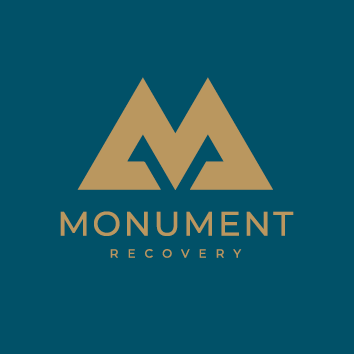Zen Treatment: How We Use Reiki, Yoga, Meditation, and More to Treat Addiction
Yoga and Sobriety • Written by: Monument Recovery

Good addiction treatment isn’t a one-size-fits-all endeavor. Sure, there are staples like evidence-based therapies (looking at you CBT and group counseling) but what if the missing piece of your recovery puzzle is less clinical and more…zen?
That’s where holistic practices like Reiki, yoga, meditation, and mindfulness come in. These are more than trendy buzzwords; they’re powerful tools that help reconnect mind, body, and spirit. And in addiction treatment, that connection can make all the difference. Let’s talk about how.
Why Holistic Practices Work in Addiction Treatment
Addiction affects your body, yes, but it also weaves itself into your thoughts, emotions, and even how you see yourself in the world. So, treating it isn’t just about quitting the substance; it’s about healing the whole person.
Holistic practices target the parts of recovery that science alone can’t fully explain. For example:
Reiki taps into your body’s energy flow, working to release blockages that might be holding you back emotionally or physically.
Yoga strengthens your body while calming your mind, teaching you how to breathe through stress instead of reacting impulsively.
Meditation helps quiet the mental chatter that often fuels cravings or self-doubt.
Mindfulness anchors you in the present moment, cutting through the noise of worry about the past or fear of the future.
These techniques don’t “replace” traditional therapies; they enhance them. Think of them as the supportive beams that hold up the foundation of your recovery.
Reiki: “Energy Work” That Isn’t as Woo-Woo as It Sounds
If the idea of someone “working on your energy” makes you roll your eyes, you’re not alone. But here’s the thing: Reiki isn’t about magic. It’s about balance.
During a Reiki session, a practitioner uses gentle hand movements to promote relaxation and emotional healing. While science hasn’t pinned down exactly how it works, many people report feeling lighter, more centered, and less anxious afterward.
In recovery, those feelings matter. Addiction thrives in chaos of all kinds; emotional, mental, or physical. Reiki offers a calm space where you can let go of some of that chaos, even if it’s just for a little while.
Yoga: More Than Fancy Poses
When you hear “yoga,” do you picture Instagram influencers twisting themselves into impossible shapes? Don’t worry, that’s not what we’re talking about here.
In addiction recovery, yoga is about reconnecting with your body in a gentle, compassionate way. It’s not a competition; it’s a practice.
Here’s why it works:
- Physical Release: Substance abuse often leaves tension stored in your body—tight shoulders, clenched jaw, restless energy. Yoga helps release that.
- Emotional Grounding: Each pose teaches patience and focus, which can translate into better coping skills off the mat.
- Breath Control: Ever notice how shallow your breathing gets when you’re stressed? Yoga emphasizes deep, intentional breathing, which calms your nervous system and helps reduce cravings.
Meditation: Training Your Brain to Chill
If you’ve ever tried meditating, you know it’s not as simple as sitting still and thinking about nothing. But with practice, meditation can help retrain your mind to respond differently to stress and cravings.
Think of it like mental strength training. Each time you notice a thought and let it pass without reacting, you’re building resilience. And resilience is crucial in recovery - it’s what helps you stay grounded when life throws you a curveball.
Mindfulness: The Art of “Right Now”
Addiction often pulls you out of the present. You’re either stuck reliving past regrets or obsessing over what comes next. Mindfulness gently brings you back to the here and now, where real change happens.
How does that look in everyday recovery?
- During meals: Tuning into flavors and textures instead of rushing or zoning out.
- In conversations: Listening fully instead of planning your next response.
- With cravings: Noticing them without judgment and letting them pass instead of acting on them.
- It’s not about perfection; it’s about awareness. And that awareness can be a game-changer.
“Wait, Can This Really Help Me Stay Sober?”
Here’s the thing: Holistic therapies aren’t magic cures, and they don’t work overnight. But combined with therapy, peer support, and other recovery tools, they can help you feel more balanced, less reactive, and more in control.
Ready to Give It a Try?
If holistic practices feel a little out of your comfort zone, that’s okay. Recovery is about growth and sometimes growth means trying something new, even if it feels a little strange at first.
At Monument Recovery, we’ll guide you through these practices in a way that’s accessible and supportive. Whether you’re sinking into your first meditation session or wobbling through a beginner yoga pose, you’ll have a safe space to explore what works for you.
If you’re ready to build a life you actually want to live, give us a call. Sometimes, the best way to build that life is to get a little zen.

